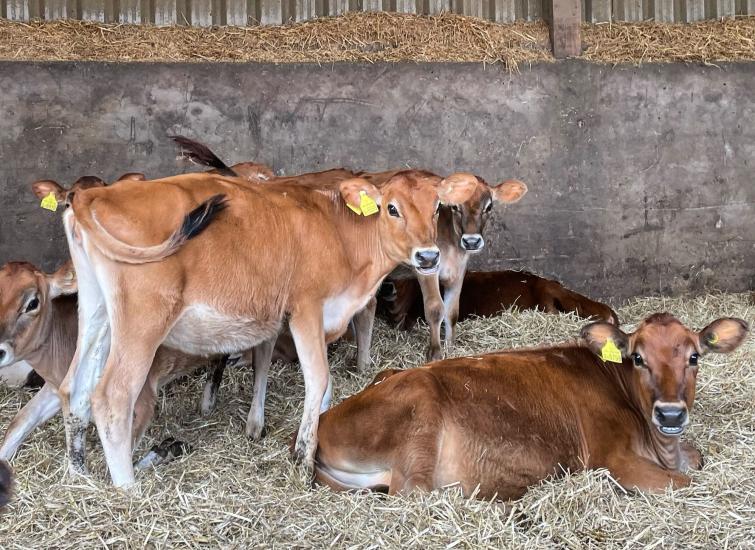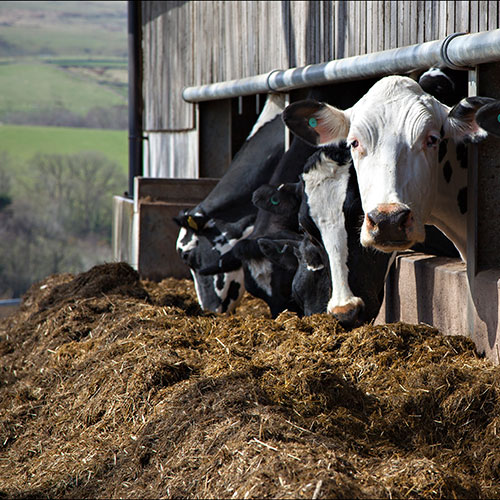We feel that by working with Advanced Nutrition, they are always looking at the bigger picture. They help us to plan ahead as well as keeping the Jersey herd running day-to-day. New ideas on management of the herd are always coming from Advanced Nutrition.
Advanced Heifer GB Calf Week - Flies!
It's the start of GB Calf Week and each day our Advanced Heifer Team are on the case with some helpful advice for your youngstock rearing each day. Here's the first piece!

As we are still experiencing warm and muggy conditions, the flies are still about.
The 2 most common fly species in the UK are house flies and stable flies. Stable flies bite livestock and can cause pain and restlessness in youngstock.
Newborn calves are at the greatest risk, as flies are attracted to embryonic fluid. Flies will often attack the navel area and continue to feed until the area is irritated and flesh exposed - increasing the risk of navel ill.
Flies begin to breed as early as March, and populations can develop quickly. Preventing a population build up is easier than killing an established population. You can look to use an insect growth regulator, such as Larvenol, or biological fly control, such as parasitic wasps, to prevent hatching of larvae (look for maggots to determine ideal locations).
Calves will often bunch together, head-to-head, and stomp/kick and swish their tails when flies are around. They will be using a lot of energy to escape and keep flies off them, which draws energy away from growth and immunity. Fly infestations can reduce growth rates by up to 19%, so keeping flies at bay is essential.
We have also seen a lot of gunky eyes on farm this year from flies. These should be bathed regularly to minimise infection, and if infection occurs, a vet should be contacted for appropriate treatment.
To keep flies at bay:
- Look to use an insect growth regulator or biological fly control earlier in the year.
- Use fly zappers/traps/tapes around calf housing to keep numbers down.
- Ensure adequate ventilation in calf housing and dry conditions.
- Prevent over-stocking or keeping calves in/around muck.
- Clean out bedding more in the summer.
- Move calves onto sawdust during the warmer months.
- Do not leave milk replacer out to attract flies, and make sure all feed is fresh and clean.
- Feed Garlyx to youngstock to act as a natural repellent.
- Keep nutrition quality and volume high to support extra energy lost.
- Use residual sprays on walls where adult flies land.
- Speak to your Vet/SQP about suitable pour-on solutions.
If you'd like more information or to arrange a free youngstock audit, please get in touch with the office - 015242 63139 office@arn-ltd.com
〈 BACK




